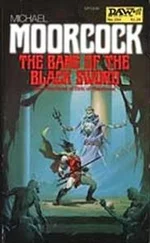Amelia Edwards - A Night on the Borders of the Black Forest
Здесь есть возможность читать онлайн «Amelia Edwards - A Night on the Borders of the Black Forest» — ознакомительный отрывок электронной книги совершенно бесплатно, а после прочтения отрывка купить полную версию. В некоторых случаях можно слушать аудио, скачать через торрент в формате fb2 и присутствует краткое содержание. Жанр: foreign_antique, foreign_prose, foreign_sf, на английском языке. Описание произведения, (предисловие) а так же отзывы посетителей доступны на портале библиотеки ЛибКат.
- Название:A Night on the Borders of the Black Forest
- Автор:
- Жанр:
- Год:неизвестен
- ISBN:нет данных
- Рейтинг книги:5 / 5. Голосов: 1
-
Избранное:Добавить в избранное
- Отзывы:
-
Ваша оценка:
- 100
- 1
- 2
- 3
- 4
- 5
A Night on the Borders of the Black Forest: краткое содержание, описание и аннотация
Предлагаем к чтению аннотацию, описание, краткое содержание или предисловие (зависит от того, что написал сам автор книги «A Night on the Borders of the Black Forest»). Если вы не нашли необходимую информацию о книге — напишите в комментариях, мы постараемся отыскать её.
A Night on the Borders of the Black Forest — читать онлайн ознакомительный отрывок
Ниже представлен текст книги, разбитый по страницам. Система сохранения места последней прочитанной страницы, позволяет с удобством читать онлайн бесплатно книгу «A Night on the Borders of the Black Forest», без необходимости каждый раз заново искать на чём Вы остановились. Поставьте закладку, и сможете в любой момент перейти на страницу, на которой закончили чтение.
Интервал:
Закладка:
I had resolved to speak to her, and this was the result. A stranger interview never, surely, fell to the lot of man! I had said nothing that I meant to say – had learnt nothing that I sought to know. With regard to her circumstances, her place of residence, her very name, I was no wiser than before. And yet I had, perhaps, no reason to be dissatisfied. She had honoured me with her confidence, and entrusted to me a task of some difficulty and importance. It now only remained for me to execute that task as thoroughly and as quickly as possible. That done, I might fairly hope to win some place in her remembrance – by and by, perhaps, in her esteem.
Meanwhile, the old question rose again – whose grave could it be? I had settled this matter so conclusively in my own mind from the first, that I could scarcely believe even now that it was not her father's. Yet that he should have died a secret convert to Christianity was incredible. Whose grave could it be? A lover's? A Christian lover's? Alas! it might be. Or a sister's? In either of these cases, it was more than probable that Salome was herself a convert. But I had no time to waste in conjecture. I must act, and act promptly.
I hastened back to Venice as fast as my gondolier could row me; and as we went along I promised myself that all her wishes should be carried out before she visited the spot again. To secure at once the services of a clergyman who would go with me to the Lido at early dawn and there read some portion, at least, of the burial service; and at the same time to engage a stonemason to cut the cross; – to have all done before she, or anyone, should have approached the place next day, was my especial object. And that object I was resolved to carry out, though I had to search Venice through before I laid my head upon my pillow.
I found a clergyman without difficulty. He was a young man occupying rooms in the same hotel, and on the same floor as myself. I had met him each day at the table d'hôte , and conversed with him once or twice in the reading-room. He was a North-countryman, had not long since taken orders, and was both gentlemanly and obliging. He promised in the readiest manner to do all that I required, and to breakfast with me at six next morning, in order that we might reach the cemetery by eight.
To find my stonemason, however, was not so easy; and yet I went to work methodically enough. I began with the Venetian Directory; then copied a list of stonemasons' names and addresses; then took a gondola a due remi and started upon my voyage of discovery.
But a night's voyage of discovery among the intricate back canaletti of Venice is no very easy and no very safe enterprise. Narrow, tortuous, densely populated, often blocked by huge hay, wood, and provision barges, almost wholly unlighted, and so perplexingly alike that no mere novice in Venetian topography need ever hope to distinguish one from another, they baffle the very gondoliers, and are a terra incognita to all but the dwellers therein.
I succeeded, however, in finding three of the places entered on my list. At the first I was told that the workman of whom I was in quest was working by the week somewhere over by Murano, and would not be back again till Saturday night. At the second and third, I found the men at home, supping with their wives and children at the end of the day's work; but neither would consent to undertake my commission. One, after a whispered consultation with his son, declined reluctantly. The other told me plainly that he dared not do it, and that he did not believe I should find a stonemason in Venice who would be bolder than himself.
The Jews, he said, were rich and powerful; no longer an oppressed people; no longer to be insulted even in Venice with impunity. To cut a Christian cross upon a Jewish headstone in the Jewish Cemetery, would be "a sort of sacrilege," and punishable, no doubt, by the law. This sounded like truth; so, finding that my rowers were by no means confident of their way, and that the canaletti were dark as the catacombs, I prevailed upon the stonemason to sell me a small mallet and a couple of chisels, and made up my mind to commit the sacrilege myself.
With this single exception, all was done next morning as I had planned to do it. My new acquaintance breakfasted with me, accompanied me to the Lido, read such portions of the burial service as seemed proper to him, and then, having business in Venice, left me to my task. It was by no means an easy one. To a skilled hand it would have been, perhaps, the work of half-an-hour; but it was my first effort, and rude as the thing was – a mere grooved attempt at a Latin cross, about two inches and a half in length, cut close down at the bottom of the stone, where it could be easily concealed by a little piling of the sand – it took me nearly four hours to complete. While I was at work, the dull grey morning grew duller and greyer; a thick sea-fog drove up from the Adriatic; and a low moaning wind came and went like the echo of a distant requiem. More than once I started, believing that she had surprised me there – fancying I saw the passing of a shadow – heard the rustling of a garment – the breathing of a sigh. But no. The mists and the moaning wind deceived me. I was alone.
When at length I got back to my hotel, it was just two o'clock. The hall-porter put a letter into my hand as I passed through. One glance at that crabbed superscription was enough. It was from Padua. I hastened to my room, tore open the envelope, and read these words: —
"Caro Signore, – The rubbing you send is neither ancient nor curious, as I fear you suppose it to be. It is a thing of yesterday. It merely records that one Salome, the only and beloved child of a certain Isaac Da Costa, died last Autumn on the eighteenth of October, aged twenty-one years, and that by the said Isaac Da Costa this monument is erected to the memory of her virtues and his grief.
"I pray you, caro signore , to receive the assurance of my sincere esteem.
"Nicolo Nicolai."
The letter dropped from my hand. I seemed to have read without understanding it. I picked it up; went through it again, word by word; sat down; rose up; took a turn across the room; felt confused, bewildered, incredulous.
Could there, then, be two Salomes? or was there some radical and extraordinary mistake?
I hesitated; I knew not what to do. Should I go down to the Merceria, and see whether the name of Da Costa was known in the quartier ? Or find out the registrar of births and deaths for the Jewish district? Or call upon the principal rabbi, and learn from him who this second Salome had been, and in what degree of relationship she stood towards the Salome whom I knew? I decided upon the last course. The chief rabbi's address was easily obtained. He lived in an ancient house on the Giudecca, and there I found him – a grave, stately old man, with a grizzled beard reaching nearly to his waist.
I introduced myself and stated my business. I came to ask if he could give me any information respecting the late Salome da Costa who died on the 18th of October last, and was buried on the Lido.
The rabbi replied that he had no doubt he could give me any information I desired, for he had known the lady personally, and was the intimate friend of her father.
"Can you tell me," I asked, "whether she had any dear friend or female relative of the same name – Salome?"
The rabbi shook his head.
"I think not," he said. "I remember no other maiden of that name."
"Pardon me, but I know there was another," I replied. "There was a very beautiful Salome living in the Merceria when I was last in Venice, just this time last year."
"Salome da Costa was very fair," said the rabbi; "and she dwelt with her father in the Merceria. Since her death, he hath removed to the neighbourhood of the Rialto."
Читать дальшеИнтервал:
Закладка:
Похожие книги на «A Night on the Borders of the Black Forest»
Представляем Вашему вниманию похожие книги на «A Night on the Borders of the Black Forest» списком для выбора. Мы отобрали схожую по названию и смыслу литературу в надежде предоставить читателям больше вариантов отыскать новые, интересные, ещё непрочитанные произведения.
Обсуждение, отзывы о книге «A Night on the Borders of the Black Forest» и просто собственные мнения читателей. Оставьте ваши комментарии, напишите, что Вы думаете о произведении, его смысле или главных героях. Укажите что конкретно понравилось, а что нет, и почему Вы так считаете.












